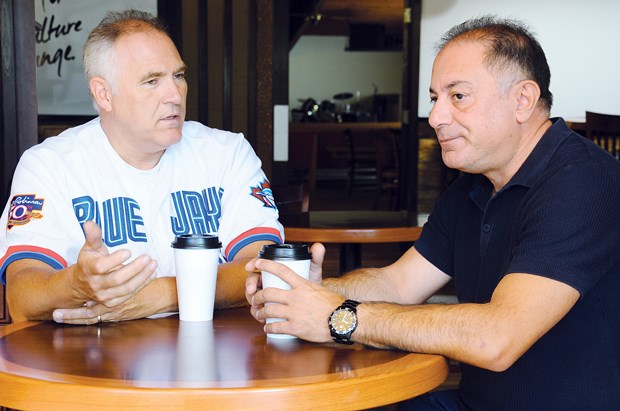Hisham Wattar is worried.
For the past month, the Syrian-born North Vancouver man has been trying to convince his youngest niece not to risk a deadly journey with human smugglers.
So far, he’s talked her into staying in Egypt, where five members of Wattar’s family have been waiting to come to Canada since they fled Syria and were granted refugee status three years ago.
But faced with repeated bureaucratic delays, the young woman is losing hope that she will ever get here. Lately, she’s been tempted to try a more dangerous journey to Europe — one now being taken by wave after wave of Syrian refugees, from a country where millions have been displaced.
It’s a journey similar to the one attempted by the family of Alan Kurdi, the three-year-old boy whose lifeless body was captured in a photograph that shocked the world after the boat he was in capsized, drowning many on board.
Kurdi’s aunt in Coquitlam had planned to help the boy and his family to come to Canada as refugees.
Wattar understands the frustration that propels families to take desperate chances.
He and North Vancouver’s Canyon Heights Church pastor Steve Moore have been trying for three years to bring his family to Canada as privately sponsored refugees.
They have filled out reams of paperwork. In their case, the process was supposed to be quicker because Moore’s church denomination already has an agreement with Ottawa, allowing it to sponsor refugees.
But so far, “It’s no faster than any other way,” said Moore.
These are people who’ve been “given hope, only to have it put on hold by some bureaucratic office,” he said.
Wattar, who runs Best Falafel in Vancouver, emigrated to Canada himself in the 1980s under a business immigrant program. Three other family members joined him later under a family reunification program.
Other family members who stayed in Syria lived normal lives until that country was torn apart by war. When student protests started on the streets of Damascus during the Arab Spring, Wattar’s 22-year-old nephew was among them. Authorities reacted swiftly, arresting the young man. The secret service raided the family home several times. “They came in with machine guns and searched the entire house. They smashed everything and threw it everywhere,” said Wattar.
They knew it was time to get out.
With Wattar’s help, his sister, two nieces and two of his niece’s children fled to Egypt.
Because private citizens can’t sponsor refugees on their own, Wattar approached Moore in 2012, asking if the church in his neighbourhood would be able to help. Wattar said it made no difference that he was a Muslim asking a Christian church for assistance.
In October 2013, Wattar and Moore started the process of filling out paperwork. When they got clearance to file a formal application, in July 2014, they were quickly approved and told the forms were being sent to Cairo for further processing. That’s when the wait began.
In March, Wattar contacted his MP Andrew Saxton and asked for help. Saxton promised he’d take up the case with Immigration Minister Chris Alexander.
But little has apparently come of that.
Last month, Moore and Wattar received a letter from the federal government saying they should expect to wait another 42 months. That’s when his 27-year-old niece started to lose hope that the family would ever get to Canada.
His niece began talking about paying smugglers to take a boat to Italy, he said.
“That’s the one they call the death boat,” said Wattar. “It’s the longest (journey) and the most dangerous.”
Moore said he understands the niece’s frustration as the family sits stateless, unable to work, go to school or go on with their lives. “We’ve already been at this 18 months,” he said. “She’s watching her life pass her by.”
The problems faced by Wattar and Moore — willing sponsors who have been prevented from bringing refugees to Canada through bureaucratic delays — are ones the federal government has faced increasing criticism for since the photo of little Alan Kurdi went around the world.
Seeing the picture of the boy drowned and face down in the sand was heartbreaking, said Wattar.
“How did we get to that? How did we let these things happen?” he asked.
For Moore, it was the photo of the rescue worker carrying the lifeless child that struck him hard.
“I’m the rescue worker,” he said. “And that boy could not be rescued. That’s what hit me. That’s kind of us. I don’t want to be at that point.”
Moore said it’s important to him to complete the sponsorship for Wattar’s family. “The journey they began is a journey that was promised to them,” he said.
“I’ve had people call me and say they want to sponsor a refugee.”
His advice: “Be ready for a big task.”



